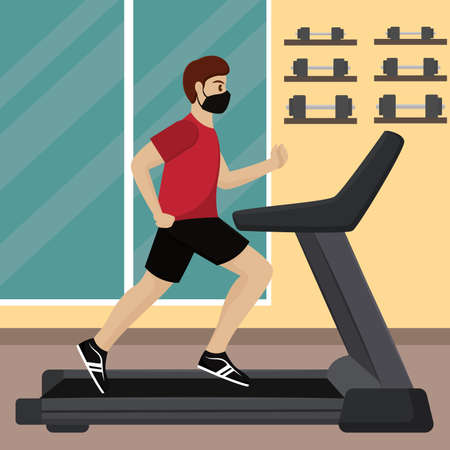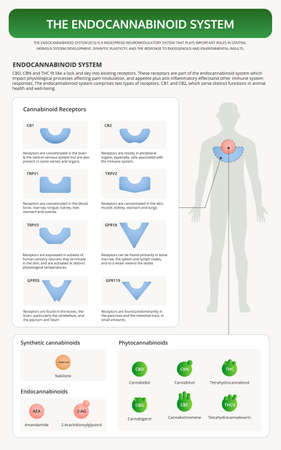Understanding Arthritis in the UK Context
Arthritis is a condition that touches the lives of millions across the United Kingdom, shaping daily routines and influencing overall wellbeing. In the UK, it is estimated that over 10 million people are living with some form of arthritis or related musculoskeletal condition. The most common types affecting British adults include osteoarthritis and rheumatoid arthritis, each presenting unique challenges in terms of pain, mobility, and long-term health. For many, arthritis is more than just joint discomfort; it can affect independence, work life, and participation in cherished social activities such as walking in the countryside or tending to an allotment.
The NHS recognises arthritis as a significant public health concern, offering guidance tailored to the British context. Recommendations often focus on self-management strategies that incorporate gentle exercise, proper medication use, and community support networks. In the UK, there is also a strong emphasis on maintaining quality of life through inclusive services—local leisure centres may provide specialised classes, while GPs and physiotherapists play a key role in personalised care plans.
Culturally, there is growing awareness around arthritis and its impact, but stigma and misunderstanding sometimes persist. British values of resilience and community mean that many seek ways to remain active and engaged despite their diagnosis. This guide aims to provide practical, evidence-based advice for developing arthritis-friendly exercise regimens that respect both medical recommendations and the unique rhythms of life in Britain.
Benefits and Safety Considerations of Exercise for Arthritis
Living with arthritis can often feel challenging, but incorporating regular physical activity into your daily routine can offer substantial relief and improvement in quality of life. For British adults, understanding the benefits and adhering to safety guidelines is essential for maximising the positive effects while minimising risk.
The Benefits of Physical Activity
Engaging in appropriate exercise helps to:
- Reduce joint pain and stiffness
- Improve flexibility and range of motion
- Increase muscle strength to support affected joints
- Boost overall mood and mental wellbeing
- Enhance cardiovascular health
Overview of Key Benefits
| Benefit | Description |
|---|---|
| Pain Relief | Gentle movement releases endorphins and reduces discomfort. |
| Improved Mobility | Maintains joint function and supports independence. |
| Mental Health Boost | Reduces anxiety, depression, and feelings of isolation. |
Safety Considerations: Exercising with Arthritis in the UK
While exercise is beneficial, it’s important to follow some safety tips:
- Begin with low-impact activities such as walking, swimming, or cycling.
- Avoid high-impact sports that put excessive strain on joints.
- If new to exercise or experiencing a flare-up, consult your GP or physiotherapist before starting any regimen.
NHS Recommendations for Safe Exercise
| NHS Advice | How to Apply It |
|---|---|
| Pace Yourself | Break activity into manageable sessions throughout the day. |
| Warm Up & Cool Down | Always include gentle stretching before and after exercise. |
| Listen to Your Body | If you experience sharp pain, stop immediately and seek advice. |
Accessibility: Making Exercise Inclusive Across the UK
The UK government offers various resources to help adults with arthritis access suitable exercise. Many local councils provide community classes tailored for those with mobility concerns. The NHS website also features guidance on home-based routines. Consider using public leisure centres, which often have accessible facilities and trained staff familiar with arthritis-friendly programmes.

3. Types of Arthritis-Friendly Exercises
Living with arthritis in the UK can sometimes present unique challenges, particularly when it comes to finding suitable exercise routines that are both gentle on the joints and compatible with our often unpredictable weather. Fortunately, there are a variety of low-impact activities that fit perfectly into British lifestyles and climate conditions, supporting joint mobility and overall wellbeing without causing unnecessary strain.
Walking in Local Parks
One of the most accessible and enjoyable forms of arthritis-friendly exercise is walking. The UK boasts an abundance of beautiful local parks and green spaces, making it easy to get outside for a gentle stroll. Walking at your own pace not only strengthens muscles around the joints but also helps maintain flexibility. Consider inviting a friend or joining a local walking group for added motivation and companionship.
Gentle Yoga
Yoga is widely recognised for its ability to improve balance, flexibility, and strength—all important factors for managing arthritis symptoms. Many community centres across Britain offer gentle yoga classes tailored for adults with limited mobility. These sessions typically focus on slow movements and mindful breathing, allowing you to work within your comfort zone while reducing stiffness and discomfort.
Swimming at the Local Leisure Centre
The buoyancy of water makes swimming an excellent choice for those seeking low-impact exercise. Most local leisure centres across the UK provide heated indoor pools where you can swim laps or participate in aqua aerobics classes. Water-based activities help support your body weight, lessening stress on joints while encouraging movement and cardiovascular health.
Group Classes by Community Organisations
Many British community organisations offer group exercise classes specifically designed for people living with arthritis. These might include chair-based exercises, Tai Chi, or even dance-inspired sessions. Participating in group activities not only supports physical health but also fosters social connections—a key aspect of holistic wellbeing, especially for those who may feel isolated due to chronic pain.
Tailoring Activities to Your Needs
It’s essential to listen to your body and choose activities that suit your individual needs and preferences. Consult with your GP or a physiotherapist before starting any new regimen, and remember that even small amounts of regular movement can make a meaningful difference in managing arthritis symptoms within the UKs unique environment.
4. Creating a Personalised Exercise Plan
When managing arthritis, every individual’s needs and abilities are unique. British adults benefit from a personalised approach that takes into account medical advice, preferences, lifestyle, and even the famously changeable UK weather. Below are practical steps to help you craft a safe, enjoyable, and sustainable exercise routine tailored to your circumstances.
Step 1: Consult with Healthcare Professionals
Before beginning any new exercise regimen, it’s essential to consult your GP or physiotherapist. The NHS provides a wealth of information on arthritis-friendly activities and can refer you to specialist services if needed.
Step 2: Set Realistic and Enjoyable Goals
Start by identifying what you enjoy—whether it’s gentle walking in your local park, stretching at home, or joining a community class. Setting achievable goals helps maintain motivation and supports long-term health.
Sample Goal-Setting Table
| Goal | Frequency | Type of Activity | How to Track Progress |
|---|---|---|---|
| Improve joint mobility | 3x per week | Gentle yoga/stretching | Journal stiffness levels before/after sessions |
| Increase stamina | Daily | Walking (indoors/outdoors) | Pedometer or phone step counter |
| Boost mood & social connection | 1x per week | Local arthritis-friendly class (NHS or council) | Attendance record & mood diary |
Step 3: Explore Local Resources and Classes
The NHS website offers directories for local physical activity classes specifically designed for people with arthritis. Many leisure centres, local authorities, and charities such as Versus Arthritis provide group sessions that cater to all abilities. These classes often foster a supportive atmosphere, helping you stay motivated while building friendships.
Step 4: Adapt to British Weather Conditions
The UK weather can be unpredictable, but this needn’t stop you from staying active. On rainy days, consider indoor activities like swimming at your nearest leisure centre, following online exercise videos recommended by the NHS, or practising chair-based exercises at home. When the sun appears, take advantage of local parks or join guided walks organised by community groups.
NHS Online Resources for At-Home Exercise
- NHS Live Well – Exercise Videos & Advice
- NHS Arthritis – Living Well With Arthritis Guide
- Versus Arthritis – Exercising With Arthritis Support
Your Personalised Plan in Action
Create a weekly schedule that blends preferred activities with flexibility for weather and energy levels. Remember, consistency is more important than intensity. Listen to your body and celebrate small achievements along the way—your journey is uniquely yours, and every step counts towards greater comfort and independence.
5. Overcoming Common Barriers
Living with arthritis in the UK comes with its own set of unique challenges, but with gentle perseverance and a few practical strategies, you can maintain an active lifestyle. Below, we address some of the most common barriers faced by British adults and offer supportive suggestions rooted in everyday life.
Motivation and Mindset
Finding motivation can be especially tough on days when joints feel stiff or energy is low. It helps to set small, realistic goals—perhaps a gentle stroll around your local park or a short chair-based routine at home. Keeping a diary of your progress can boost your morale, and don’t hesitate to celebrate small victories. Consider joining local arthritis support groups or online communities for encouragement; sharing your journey often makes the path less lonely.
Weather Woes
The unpredictability of British weather can make outdoor activities challenging. On rainy or chilly days, indoor exercises such as yoga, tai chi, or even simple stretching can be done in the comfort of your living room. Leisure centres and community halls often offer arthritis-friendly classes too. Remember, it’s perfectly fine to adapt your routine to the weather—consistency matters more than intensity.
Access to Facilities
Rural living or limited mobility may restrict access to gyms or pools. In these cases, embrace home-based exercise routines using resistance bands, household items for light weights, or online video classes tailored for arthritis care. The NHS website and charities like Versus Arthritis provide free resources and guidance for safe at-home workouts.
Managing Symptom Flare-Ups
It’s important to listen to your body, especially during flare-ups. Adjust your activity level without feeling guilty—rest is just as crucial as movement. Gentle stretching or relaxation techniques such as deep breathing may help ease discomfort until symptoms subside. If pain persists, consult your GP before resuming regular exercise.
Nurturing Consistency Through Everyday Life
Incorporate movement into daily routines: walk to the local shop instead of driving, take short breaks for stretching while watching telly, or join a neighbour for a gentle walk in the park. Every little bit counts towards maintaining joint health and overall well-being.
A Gentle Reminder
Your journey with arthritis is uniquely yours—be kind to yourself and seek support when needed. Small steps taken regularly can yield meaningful results over time, allowing you to enjoy life’s simple pleasures across Britain’s beautiful landscapes.
6. Community Support and Resources
Living with arthritis can sometimes feel isolating, but you are never alone. Across the UK, a wealth of community support and resources are available to help adults manage their symptoms and stay active. Whether you prefer in-person connections or online engagement, there is an option to suit everyone’s preferences and needs.
National Charities and Organisations
The UK is home to several prominent charities dedicated to supporting people with arthritis. Versus Arthritis is a leading charity offering comprehensive information, guidance, helplines, and local branches throughout England, Scotland, Wales, and Northern Ireland. They run workshops, provide exercise guides tailored for arthritis, and offer peer support networks so you can connect with others who truly understand your experience.
Local Community Programmes
Many local councils and NHS trusts collaborate with leisure centres and community groups to offer free or low-cost exercise classes specifically designed for individuals with arthritis. These may include gentle yoga, aqua aerobics, tai chi, or walking groups led by qualified instructors familiar with joint-friendly adaptations. Contact your local GP surgery or council website to find out what’s available in your area.
Online Support Groups
If attending in person isn’t possible or comfortable for you, online communities can be a lifeline. Platforms such as HealthUnlocked host UK-based forums where you can ask questions, share experiences, and receive encouragement from fellow adults living with arthritis. Versus Arthritis also runs moderated online groups and webinars featuring expert advice and practical tips on staying active.
Free Exercise Programmes
You do not have to face financial barriers when seeking ways to keep moving. The NHS provides free digital resources—such as videos and printable guides—for safe exercises at home. Many charities distribute free booklets or host virtual classes via YouTube or Facebook Live, making it easier than ever to join in from the comfort of your own home.
Remember, reaching out for support is a sign of strength. Embracing these resources can empower you to make positive changes at your own pace while feeling connected to a wider community that truly cares.


